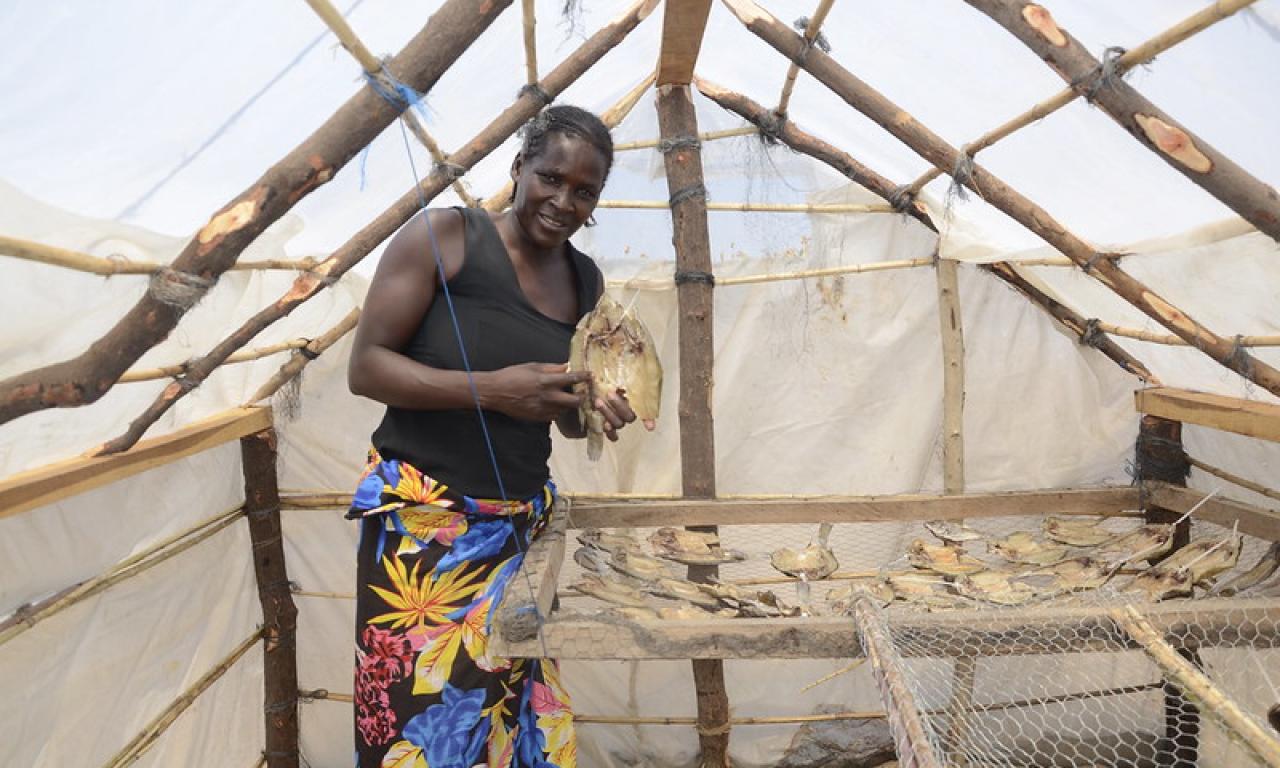
A review of the actions needed to enhance the contributions of fish and aquatic foods to Zambia’s sustainable development ahead of the UN Food Systems Summit.
Landlocked Zambia is rich in aquatic resources in the form of rivers, lakes and wetlands and has potential to be the fish basket for southern Africa. The country’s inland water bodies support a growing aquaculture sector, along with a diverse and widespread capture fisheries sector that is predominately small-scale fisheries (SSF), that make increasingly important contributions to food security and local and national economies.
Poverty and food insecurity are high in Zambia, especially among rural populations, with 42 percent of people living in extreme poverty and more than half experiencing hunger. Malnutrition is particularly prevalent among children under five years old, as 58 percent have anaemia and 35 percent are stunted. Local food production systems, mainly small-scale fisheries, are key to alleviating diet-related health conditions and delivering accessible and affordable micronutrients to the urban poor and rural communities, where other animal-sourced foods are often inaccessible.
The small-scale fisheries sector provides the bulk of the country’s domestic fish supply, which is traded extensively across the region, and offers a widely available and nutritious food source and diverse livelihood opportunities. Despite the sector’s importance in underpinning sustainable development, information gaps persist in the monitoring and reporting of SSF across value chains, with the economic and nutritional benefits of the sector persistently undervalued.
In preparation for the UN Food Systems pre-summit, a WorldFish-led policy brief, developed in partnership with the CGIAR Research Program on FISH, reviewed the state of Zambia’s small-scale fisheries sector and its contributions to human well-being and sustainable development. The brief outlined key actions to enhance the role of fish in healthy diets and enable Zambia to transition to a more sustainable and nutritious future food system.
- Increase fish consumption in vulnerable populations to alleviate undernutrition and micronutrient deficiencies. Fish and other aquatic foods from SSF are the most widely available and accessible animal-source food for many Zambians; they are a local, sustainable, resilient and nutritious food source with greater potential to nourish a growing population. Fish harvested from SSF provide an excellent source of nutrients, such as iron, calcium, zinc, vitamin B12 and omega-3 fatty acids, that can meet the nutritional needs of women and children. Consumption of fish by pregnant and lactating women, and during the first 1000 days of life in young children, has been associated with improved physical and cognitive development and reduced stunting.
- Enhance value chains to build resilience and reduce fish loss and waste. New technologies are needed to increase the resilience of fisheries and safeguard aquatic resources against social and economic shocks. Postharvest losses in Zambia are estimated to be around 12 percent of total catches, with fish processors incurring the highest losses. Training and extension services can improve fishers’ knowledge and reduce losses through innovative preservation methods to extend fish shelf life, such as icing, solar drying and smoking via kilns. By enhancing fish supply from SSF by just 1 percent, via reductions in waste and loss, 90,000 Zambians can be provided with the minimum recommended fish intake for a healthy and sustainable diet.
- Integrate management and policies across the fish-forest-landscape-water nexus to protect and strengthen ecosystem functions. Land use changes and environmental degradation, driven mainly by unsustainable farming practices and mining, have resulted in the loss of critical aquatic habitats and rampant pollution. Fisheries management and governance must address growing pressure on freshwater environments and work across sectors to ensure fish stocks and critical fish habitats are protected and adequately managed.
- Improve reporting and data collection on aquatic foods and small-scale fisheries to demonstrate their substantial contributions. Informal catches from SSF are often underreported, leading to inaccurate estimates of the number of people who depend on the sector for their livelihoods. Actual employment across small-scale value chains can be up to five times higher than official records, and the sector’s overall contribution to Zambia’s GDP is underestimated. As such, the flow of nutritional and economic benefits across value chains are undervalued, with untapped potential in identifying entry points to improve fish’s contribution to sustainable development. Diverse aquatic foods, beyond fish, are also not monitored and reported.
- Invest in sustainable aquaculture as a complement to capture fisheries. Sustainable aquaculturerepresents a new source of fish production that can complement capture fisheries, with substantial potential to improve fish supplies and consumption in the country while generating new jobs and incomes. Many smallholders, including women-led farms and businesses, could benefit from more focus on the inclusive development of sustainable aquaculture within Zambia, with development centered on ensuring affordability and accessibility for all.
These game-changing solutions to problems faced by small-scale fishers and farmers can contribute to the transformation of national food systems within Zambia and ensure healthy and equitable diets for all. Aquatic foods should ultimately be prioritized on the agenda at the UN Food Systems Summit to capitalize on their potential for development and food systems transformation.
The UN Food Systems Summit will see diverse stakeholders gather from across the world to direct global food systems onto a more equitable and sustainable path and deliver progress on the Sustainable Development Goals.
